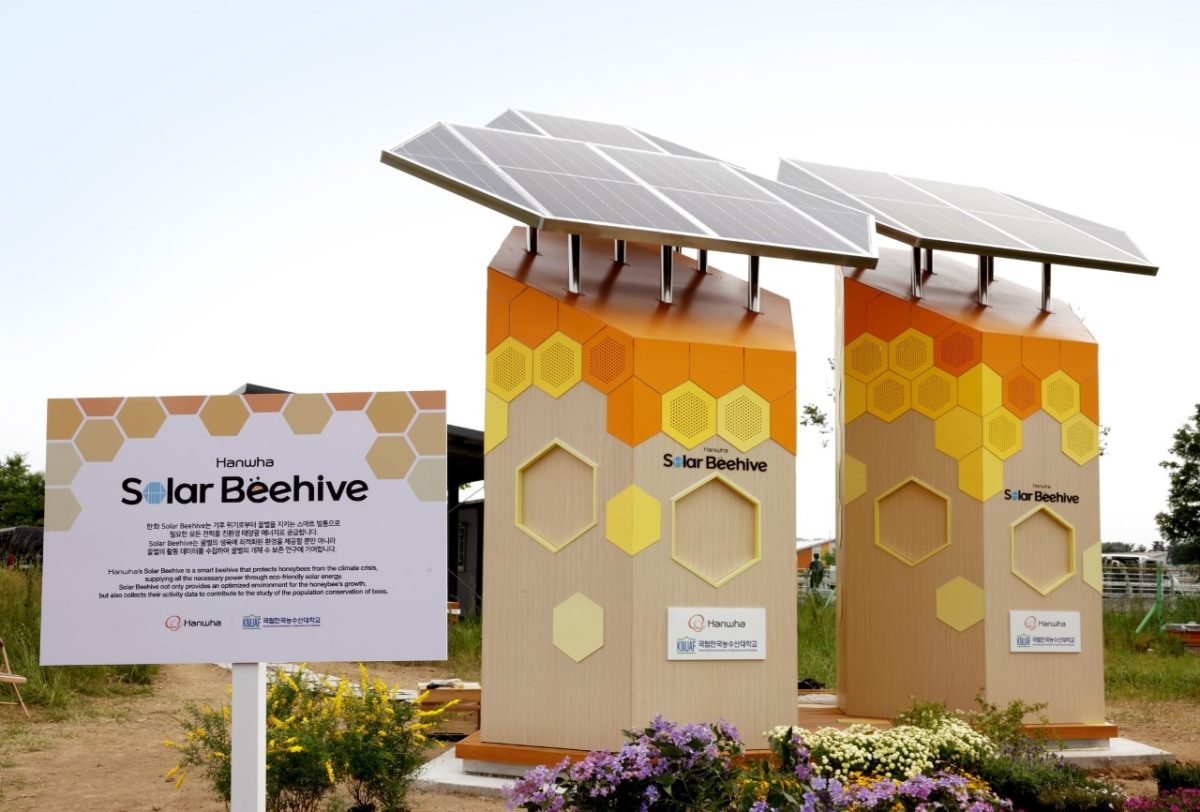Hanwha Group has installed South Korea’s first solar beehive at the Korea National University of Agriculture and Fisheries (KNUAF), as part of a pilot program to increase the population of the world’s most important pollinators. Around 40,000 bees will help pollinate the fruit trees on campus and vegetation in nearby woodland areas.
The solar beehive consists of two parts: a smart internal beehive that controls the bees’ growing environment, and an external structure that provides electricity to the beehive. The structure is made of Q Cells’s Q. PEAK DUO XL-G10 panels arranged in a hexagonal shape, to resemble the format of the cells of a beehive, Albert Park, director for Hanwha’s communication committee, told pv magazine.
On average, the panels will generate more than 10 kWh of electricity per day, reaching a maximum of 15 kWh per day in summer. The electricity generated by the PV panels will be used to automatically monitor and control the temperature, humidity, water, and food inside the structure, thereby maintaining a stable growing environment for the bees. The data can be monitored and controlled in real time through the beehive’s smart system app.
“The solar beehive will effectively increase the bee population and preserve the species, as it can monitor the growth of the bees in real time and detect diseases and pests immediately,” said Professor Hye-Kyung Kim of the Department of Industrial Entomology at KNUAF.
Evidence suggests that the concentration of bees within a 1-kilometer radius of a solar farm could be up to four times higher than that of other agricultural sites. The significant increase can be attributed to the range of plant species that often grown around solar farms.
Hanwha Group said the pilot project could help to disprove the assumption that solar farms negatively affect ecosystems of bees. The company is waiting for the results of the project to determine whether to install more solar beehives, said Park.
This content is protected by copyright and may not be reused. If you want to cooperate with us and would like to reuse some of our content, please contact: editors@pv-magazine.com.



1 comment
By submitting this form you agree to pv magazine using your data for the purposes of publishing your comment.
Your personal data will only be disclosed or otherwise transmitted to third parties for the purposes of spam filtering or if this is necessary for technical maintenance of the website. Any other transfer to third parties will not take place unless this is justified on the basis of applicable data protection regulations or if pv magazine is legally obliged to do so.
You may revoke this consent at any time with effect for the future, in which case your personal data will be deleted immediately. Otherwise, your data will be deleted if pv magazine has processed your request or the purpose of data storage is fulfilled.
Further information on data privacy can be found in our Data Protection Policy.